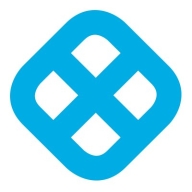

SonarQube and Qwiet AI are competitors in code analysis and security. SonarQube has an upper hand due to its established reliability and wide feature set.
Features: SonarQube provides comprehensive static code analysis with multi-language support, strong emphasis on code quality, and extensive security measures. Qwiet AI is distinguished by AI-driven predictive analysis, early vulnerability detection, and highlighting potential risks.
Ease of Deployment and Customer Service: SonarQube offers both self-hosted and cloud deployment models, fitting different IT infrastructures with robust customization options and thorough documentation. Qwiet AI is primarily cloud-based with easy setup and strong customer support, beneficial for quick deployments.
Pricing and ROI: SonarQube's pricing aligns with enterprise budgets, often with lower initial setup costs, delivering strong ROI for long-term use. Qwiet AI, with a higher setup cost, offers significant ROI through its advanced AI features, appealing to organizations focusing on innovative security.
| Product | Market Share (%) |
|---|---|
| SonarQube | 19.2% |
| Qwiet AI | 0.7% |
| Other | 80.1% |
| Company Size | Count |
|---|---|
| Small Business | 41 |
| Midsize Enterprise | 24 |
| Large Enterprise | 79 |
Shipping secure code is painful and time-consuming – slowing down development teams and AppSec teams alike. ShiftLeft is on a mission to make vulnerabilities history. Our revolutionary Code Property Graph (CPG) enables us to seamlessly insert 10x faster code analysis, prioritized OSS vulnerability findings and real-time security education in one single SaaS platform integrated directly into modern development workflows. Combining our OWASP-benchmark dominating NG-SAST, Intelligent SCA, instant secrets detection, and contextual security education, ShiftLeft CORE code security platform turns every developer into an AppSec expert.
SonarQube provides comprehensive support for multi-language development, custom coding rules, and quality gates, integrated seamlessly into CI/CD pipelines. It empowers teams with clear insights through intuitive dashboards, identifying vulnerabilities, code smells, and technical debt.
SonarQube is renowned for its extensive capabilities in static code analysis, making it an invaluable tool for maintaining code quality. By fully integrating into development processes, it allows organizations to manage vulnerabilities and ensure compliance with coding standards. Its extensive community and open-source roots contribute to its accessibility, while robust dashboards facilitate code quality monitoring. Despite its strengths, feedback suggests enhancing analysis speed, better integration with DevOps tools, and refining the user interface. Users also point to the need for handling false positives effectively and expanding on AI-based features for dynamic code analysis.
What are SonarQube's main features?In industries like finance and healthcare, SonarQube aids in obtaining regulatory compliance through rigorous code quality assessments. It is implemented to enhance cybersecurity by identifying potential vulnerabilities, while ensuring code meets the stringent standards demanded in these fields. As part of a broader development ecosystem, its integration in CI/CD pipelines ensures smooth and efficient software delivery, catering to phases from code inception to deployment, effectively supporting large-scale and critical software applications.
We monitor all Application Security Tools reviews to prevent fraudulent reviews and keep review quality high. We do not post reviews by company employees or direct competitors. We validate each review for authenticity via cross-reference with LinkedIn, and personal follow-up with the reviewer when necessary.